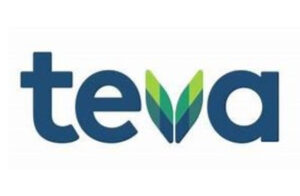
January 17, 2021 / Bio Valley BIOON / – Teva Pharmaceutical Information Consulting (Shanghai) Co., Ltd. recently announced that its innovative drug Antaitan® (deuterium tetrabenazine tablets, English product name: Austedo, generic name: deutetrabenazine ) is marketed in China for the treatment of chorea associated with Huntington’s disease (HD) and adult tardive dyskinesia (TD).
In China, Antaitan® (Austedo) was approved by the State Food and Drug Administration in May 2020. It is worth mentioning that Austedo is the world’s first approved deuterated drug, and China is the second country in the world to approve Austedo after the United States. As part of the rapid review process, NMPA previously included Austedo in the “List of Overseas New Drugs Urgently Needed in Clinical Medicine (First Batch)” and gave it priority review. The approval process was finally completed within 4 months to benefit Chinese patients.
The deuterium technology used by Atentan® gives the active ingredient a good pharmacokinetic profile, allowing for less frequent dosing, while showing efficacy and safety in patients with Huntington’s disease (HD) and adult tardive dyskinesia. Acceptable safety and tolerability. In addition, on December 28, 2020, Antaitan® was officially included in the “National Basic Medical Insurance, Work Injury Insurance and Maternity Insurance Drug Catalog (2020)”, which will greatly reduce the treatment burden of patients and improve the accessibility of innovative treatments .
Huntington’s disease (HD) is a rare and fatal neurodegenerative disease with an overall prevalence of 0.40 per 100,000 people in Asia and an average age of onset of 40 years. Chorea (involuntary, random and sudden writhing and/or turning movements) is one of the most prominent physical manifestations of the disease, present in approximately 90% of patients.
Wu Zhiying, deputy dean of the Second Affiliated Hospital of Zhejiang University School of Medicine and director of the Neurology Research Center, said: “There is no specific drug for Huntington’s disease, and the current treatment is still based on empirical symptomatic treatment. Yes, the drug that is believed to be able to control the symptoms of Huntington’s (HD) chorea will enrich the clinical treatment options for doctors after entering China, and it is also expected to be included in the medical insurance this time, which shows that the country attaches great importance to the group of patients with rare diseases.”
Tardive dyskinesia (TD) is a debilitating movement disorder characterized by repetitive and uncontrollable movements of the tongue, lips, face, body, and extremities. The prevalence of TD in Chinese schizophrenic patients on long-term antipsychotic treatment was 33.7%, which may be caused by certain drugs used to treat mental health conditions, which means that schizophrenic patients using these drugs 1 in 3 may have TD. This disorder not only affects patients’ treatment compliance, but also affects patients’ quality of life and their social functioning. Currently, there is no obvious effective treatment for TD in China. Atentan® (Austedo) is the first drug approved in China for the treatment of TD. It can significantly reduce abnormal involuntary movements in TD patients and is well tolerated, bringing hope to patients to improve their quality of life and social function.
In China, Antaitan® (Austedo) was approved by the State Food and Drug Administration in May 2020. It is worth mentioning that Austedo is the world’s first approved deuterated drug, and China is the second country in the world to approve Austedo after the United States. As part of the rapid review process, NMPA previously included Austedo in the “List of Overseas New Drugs Urgently Needed in Clinical Medicine (First Batch)” and gave it priority review. The approval process was finally completed within 4 months to benefit Chinese patients.
The deuterium technology used by Atentan® gives the active ingredient a good pharmacokinetic profile, allowing for less frequent dosing, while showing efficacy and safety in patients with Huntington’s disease (HD) and adult tardive dyskinesia. Acceptable safety and tolerability. In addition, on December 28, 2020, Antaitan® was officially included in the “National Basic Medical Insurance, Work Injury Insurance and Maternity Insurance Drug Catalog (2020)”, which will greatly reduce the treatment burden of patients and improve the accessibility of innovative treatments .
Huntington’s disease (HD) is a rare and fatal neurodegenerative disease with an overall prevalence of 0.40 per 100,000 people in Asia and an average age of onset of 40 years. Chorea (involuntary, random and sudden writhing and/or turning movements) is one of the most prominent physical manifestations of the disease, present in approximately 90% of patients.
Wu Zhiying, deputy dean of the Second Affiliated Hospital of Zhejiang University School of Medicine and director of the Neurology Research Center, said: “There is no specific drug for Huntington’s disease, and the current treatment is still based on empirical symptomatic treatment. Yes, the drug that is believed to be able to control the symptoms of Huntington’s (HD) chorea will enrich the clinical treatment options for doctors after entering China, and it is also expected to be included in the medical insurance this time, which shows that the country attaches great importance to the group of patients with rare diseases.”
Tardive dyskinesia (TD) is a debilitating movement disorder characterized by repetitive and uncontrollable movements of the tongue, lips, face, body, and extremities. The prevalence of TD in Chinese schizophrenic patients on long-term antipsychotic treatment was 33.7%, which may be caused by certain drugs used to treat mental health conditions, which means that schizophrenic patients using these drugs 1 in 3 may have TD. This disorder not only affects patients’ treatment compliance, but also affects patients’ quality of life and their social functioning. Currently, there is no obvious effective treatment for TD in China. Atentan® (Austedo) is the first drug approved in China for the treatment of TD. It can significantly reduce abnormal involuntary movements in TD patients and is well tolerated, bringing hope to patients to improve their quality of life and social function.


